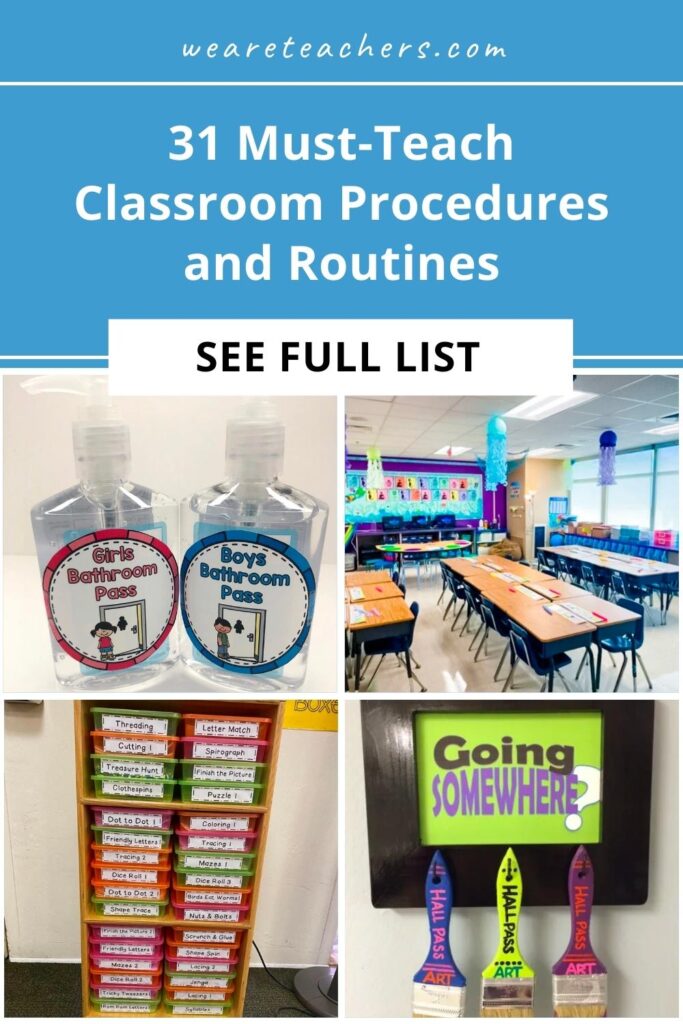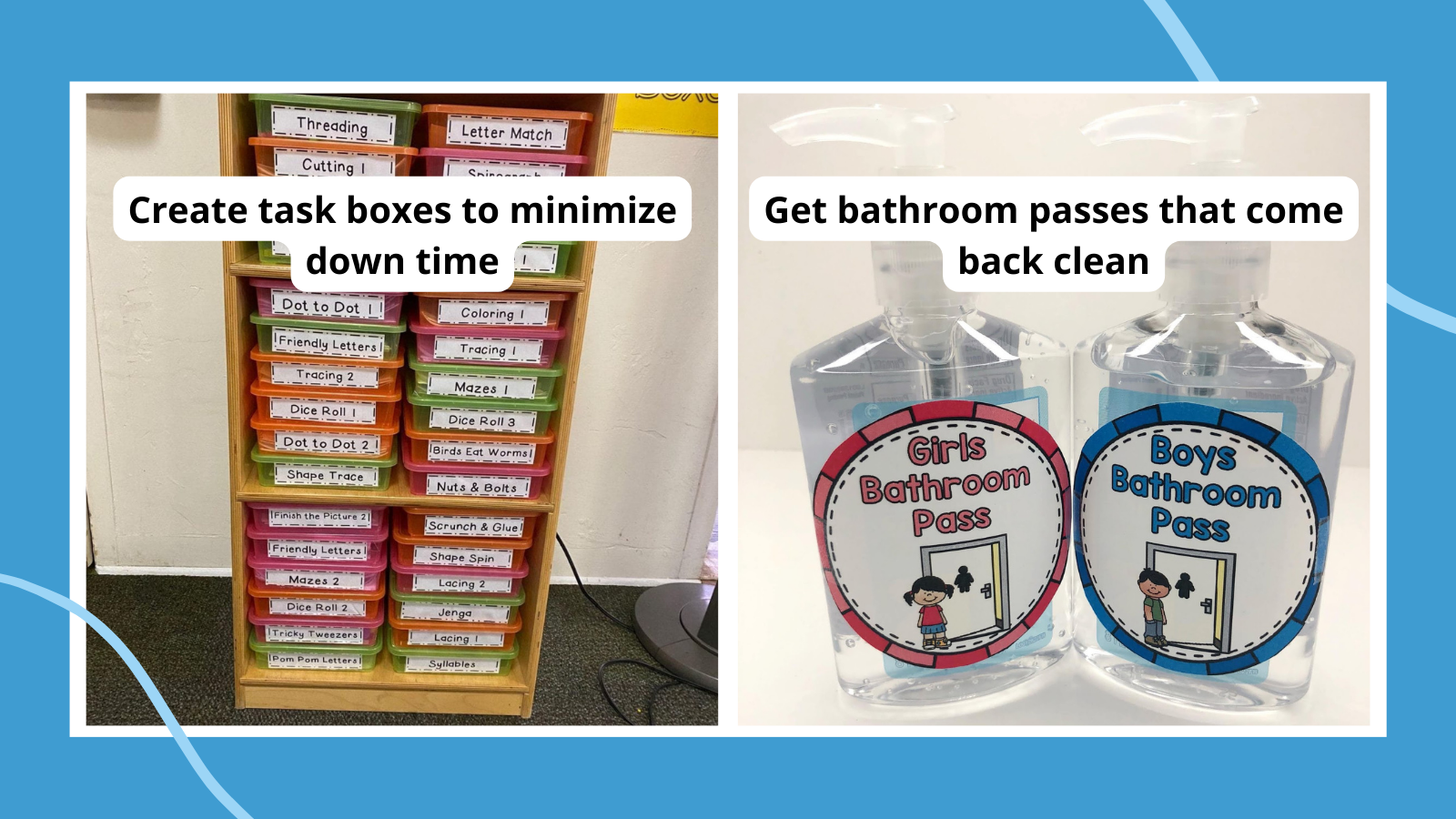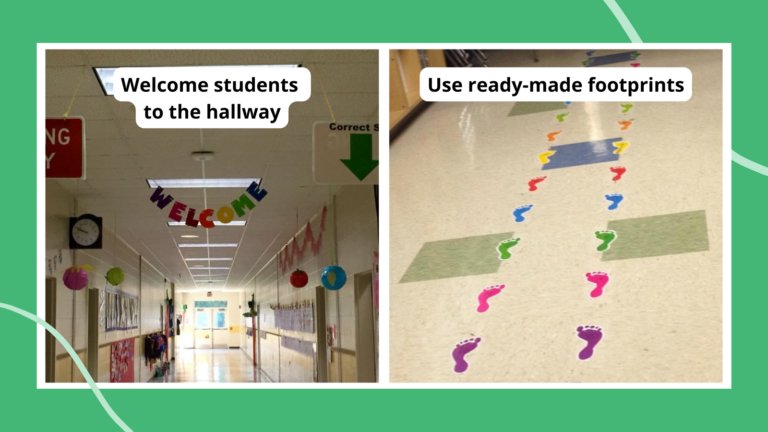If classroom management is top of mind for you as we begin another school year, you’re not alone. So many educators in our WeAreTeachers community tell us they struggle with classroom management and are looking for support. These 31 ways to establish, reinforce, and streamline classroom procedures are a great place to start. These tips come recommended from our team and our WeAreTeachers HELPLINE group on Facebook.
(Just a heads up, WeAreTeachers may collect a share of sales from the links on this page. We only recommend items our team loves!)
1. Use hand signals
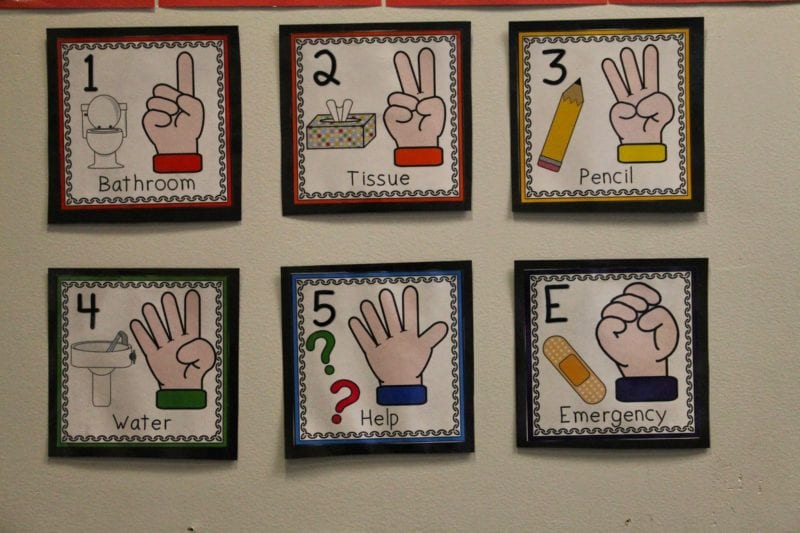
Hand signals work for all grade levels and can help minimize distractions from your active teaching and discussion. The key to making them work? “Print out a chart as a reminder,” says teacher Mary M. “Practice them the first few days of school, then if a kid tries to ask you something, you can point to the chart.” See our list of favorite hand signals here.
Learn more: Hand Signals/J.D.’s Rockin’ Readers
2. Set a routine for lining up
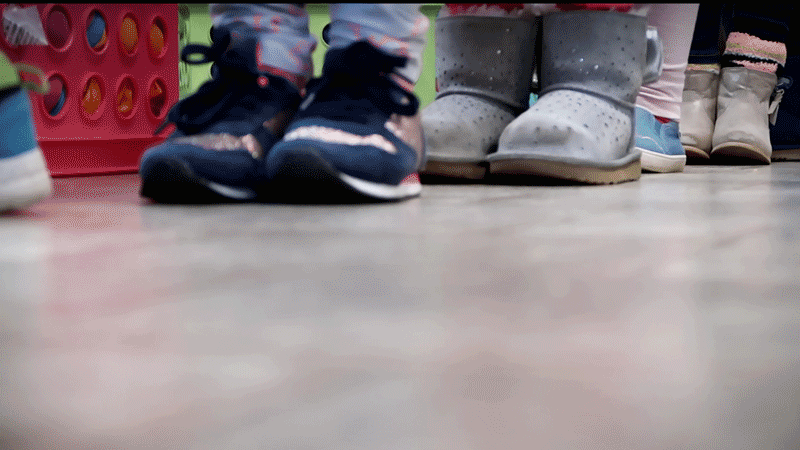
Looking for new lining-up strategies? From friendly competitions to songs and more, we have you covered! All ideas are teacher tested, so you know they work.
Learn more: Ideas for Lining-Up Strategies
3. Set a timer for transitions
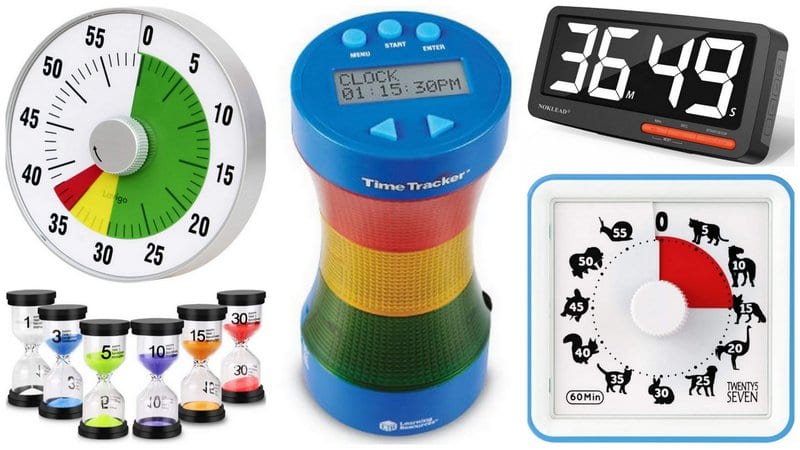
Transitions can be challenging for so many of our kids. Giving students a clear idea of when you all will move on to the next activity can really help. Many of our HELPLINE teachers say that using a timer was their number-one classroom-management tip. The stoplight timer pictured above adds a nice visual cue. Here’s a tip: The timer on your phone works great too, especially if your students get to choose the alert sound!
Learn more: Best Classroom Timers and Unique Online Timers
4. Provide bell ringers
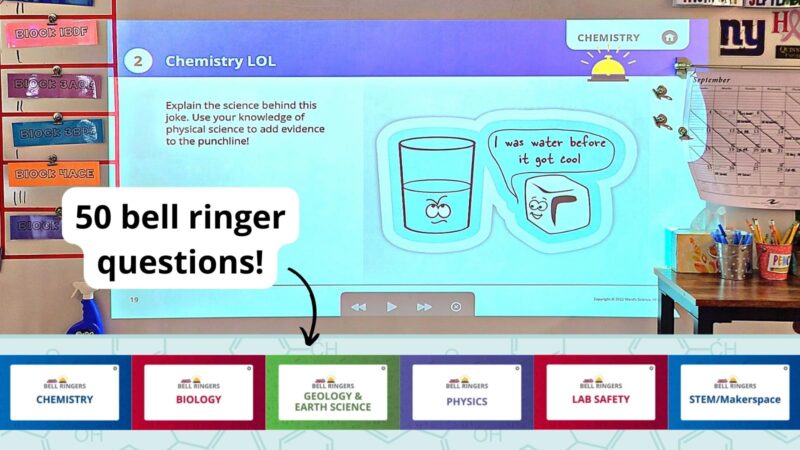
Bell ringers, or bell work, help to set the tone for learning the minute students walk into your room. If the expectation is that students will immediately begin their bell work, you will minimize the disruptions that naturally occur when students are streaming into your room. Bell work can sometimes have a negative connotation, but it doesn’t have to be worksheets or writing response.
Learn more: No-Prep Bell Ringers for Middle School ELA and Science Bell Ringers
5. Share your calendar
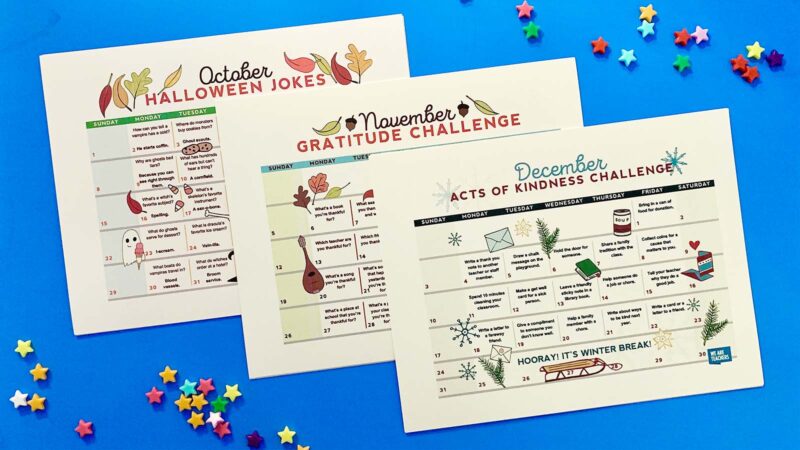
“I post a calendar on the inside of my door with that month’s important events,” says Tova R. “When students need to know when something is, they go to the calendar.” Paper and pen not your jam? Google Calendar makes it easy to share a digital version too. “I train my students to use Google Calendar and model how I use it too,” says Tamara R. “Once a month we have a housekeeping session where we annotate and revise important dates and events.”
Learn more: Editable Classroom Calendars
6. Be clear about technology rules
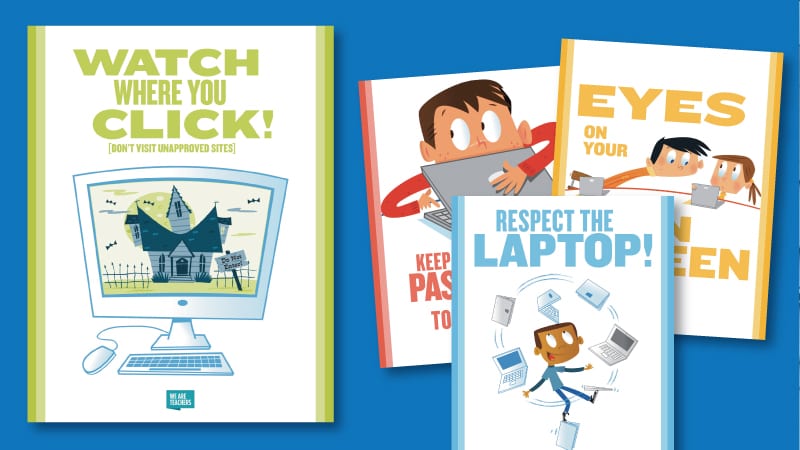
Classroom tech can be a huge distraction if kids don’t know the rules.
Learn more: Free Printable Classroom Technology Rules Poster and Classroom Cell Phone Policy
7. Have a system for pencils
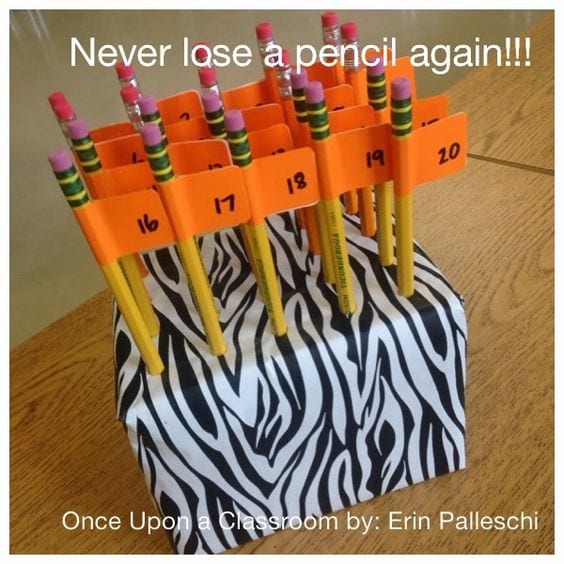
Prevent time lost in searching for and sharpening pencils by establishing a system and sticking to it. “I always have two pencils per student. One for their desk and one in the rack for emergencies,” says Trisha M. “Each student’s pencils have their own duct tape and number so that they can identify it. It has cut down on interruptions, arguments, and kleptomania!”
Learn more: Pencil Keeper/Once Upon a Classroom and Ideas for Pencil Organization
8. Lock down your bathroom policy
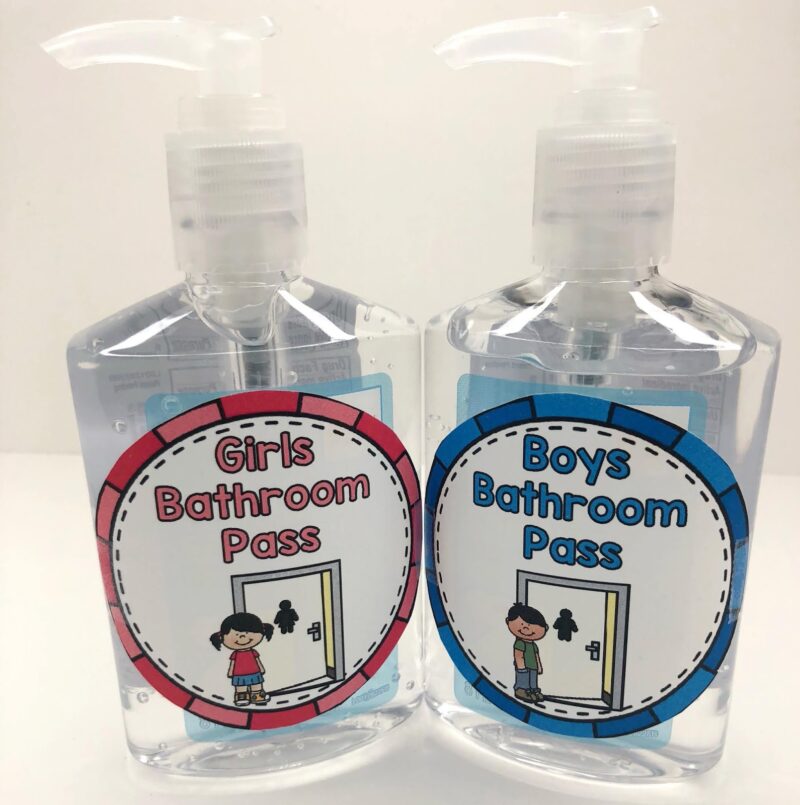
Many teachers swear by bathroom passes. “I keep two large bottles of hand sanitizer, one labeled BOYS and one labeled GIRLS,” says Stacey S. “If they need to go, they just put it on their desk, and when they get back, they put it on the counter.”
Others, particularly at the secondary level, prefer to have their students just go to the bathroom without asking at all. Whatever your preference, be explicit about your classroom procedures for using the bathroom from day one.
Learn more: Hand Sanitizer Bathroom Pass/Mrs. B’s Beehive and Creative Bathroom Pass Ideas
9. Date-stamp students’ work
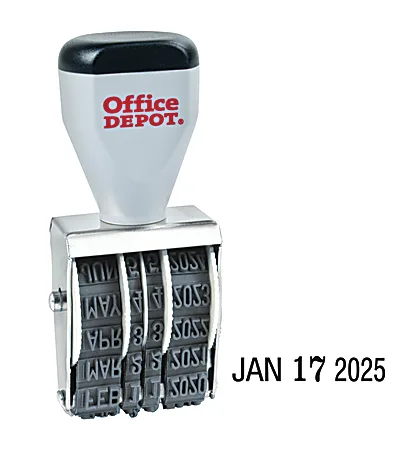
“I stamp all work as students hand it in to prove who has late work,” says Missie B. “A couple of years ago, I had students sneak assignments into the tray late before I had a chance to pull them out or say they turned things in when they didn’t. This took care of both of those problems.”
Buy it: Date Stamp at Office Depot
10. Set up turn-in trays
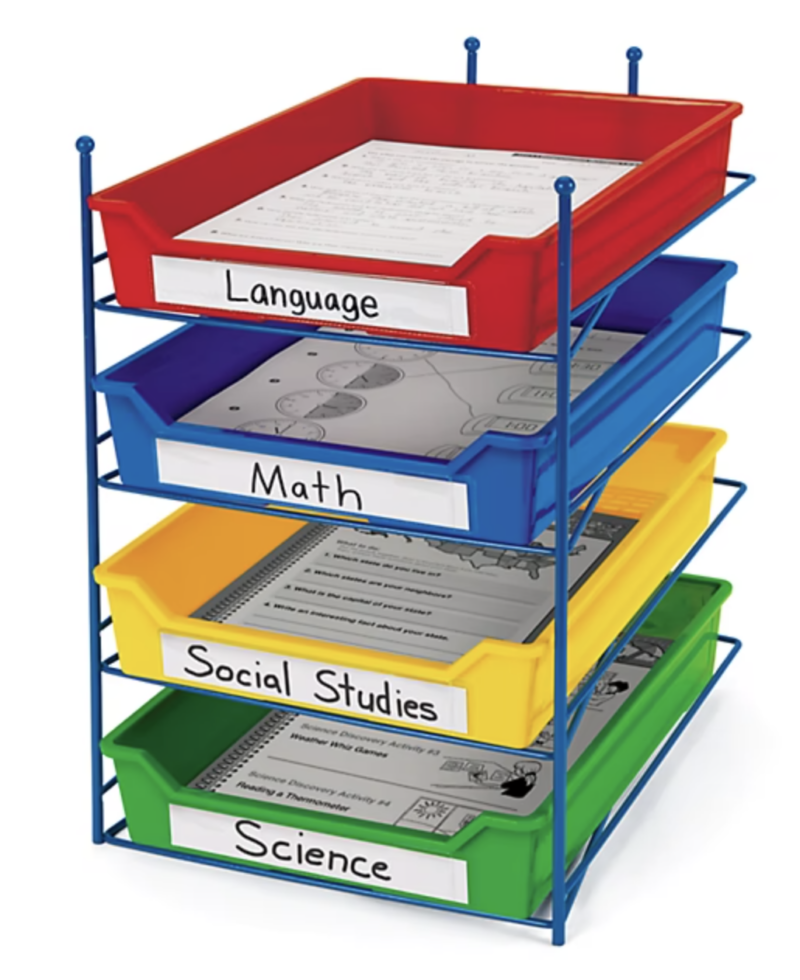
Turn-in trays allow for more independence from your students and easy paper sorting for you. Some teachers use different trays for different subjects/classes, while others prefer one slot/tray for each student.
Buy it: Turn-in-Your-Work Organizer at Lakeshore Learning and 30-Slot Mailbox at Amazon
Learn more: Ideas for Turn-In Bins
11. Ask students to highlight their names before turning in work
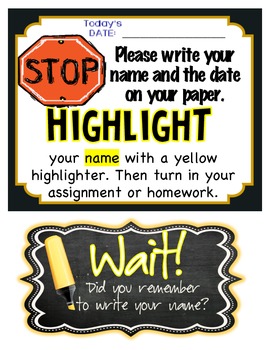
This is one of our favorite classroom procedures because it’s easy and cuts back on a big problem. “The no-name papers will disappear,” says Kristin B.W.
Learn more: Free Highlight Your Name Poster at Teachers Pay Teachers
12. Greet every student at the door
“They behave better when they feel cared about,” says Debra M. Don’t we all?
13. Use a visual timer
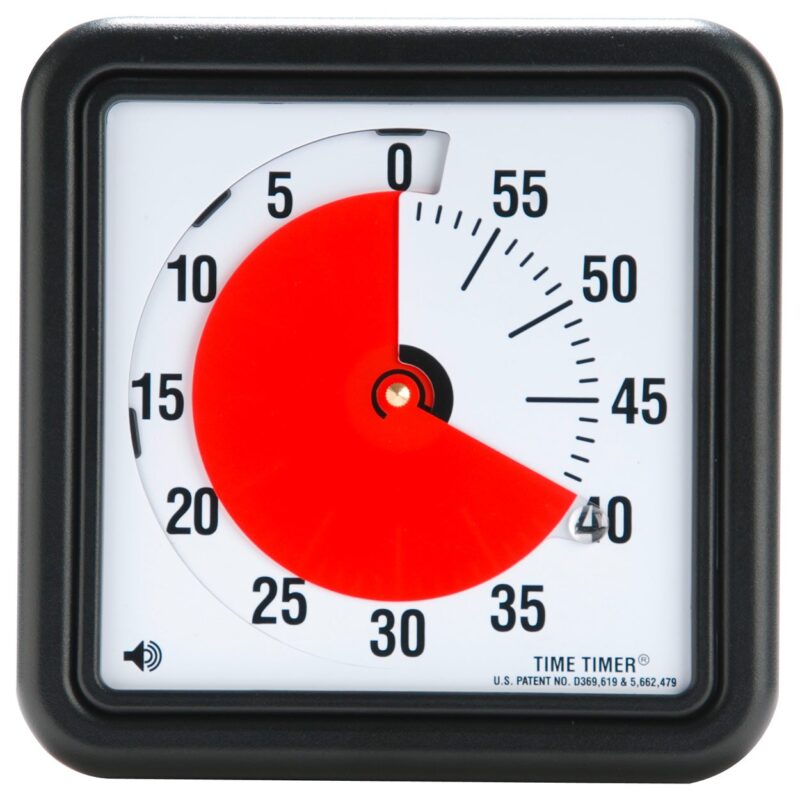
A Time Timer or visual timer shows how much time is left in an activity, letting students answer the “how much time do we have” question on their own.
Buy it: Visual Timer at Amazon
14. Streamline hall passes
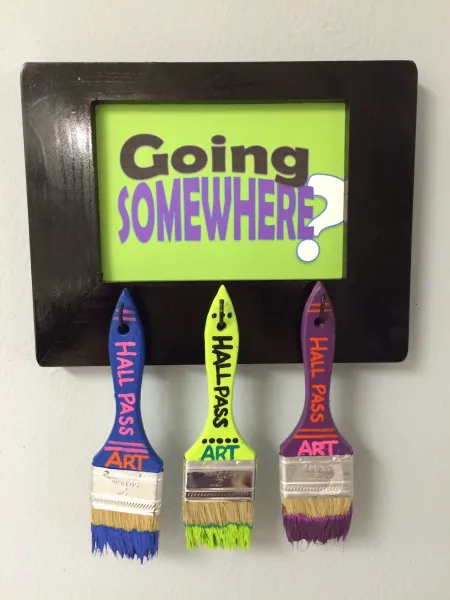
Having a hall pass that works for your class will make your day infinitely easier as students will know if they can leave your class, and other teachers will know the students are permitted to move around the school.
Learn more: Paintbrush Hall Pass/Create Art With Me and Hall Pass Ideas
15. Stamp your feedback
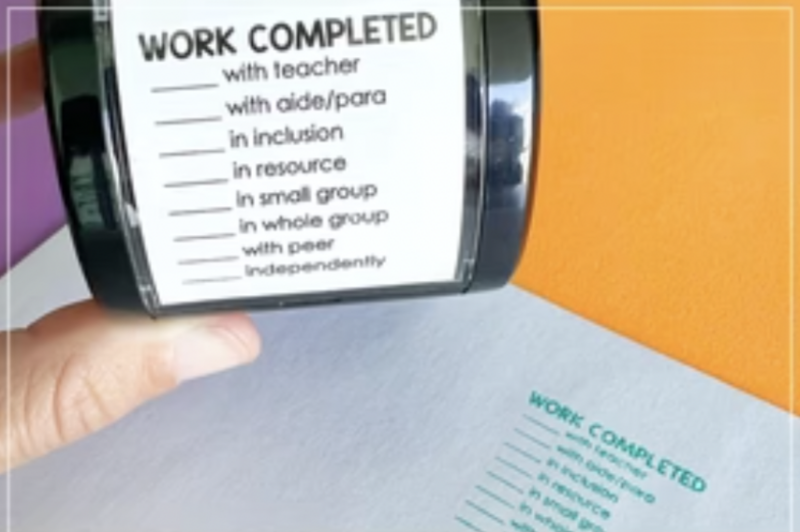
Get a set of self-inking stamps that you can use to give feedback on student work. Or for students who are working on completing work independently or improving behavior, use rubber stamps that address common concerns as well as data tracking for students with IEPs.
Buy it: Rubber Stamps at Mrs. D’s Corner
16. Get their attention
Having a selection of attention-getters that you can alternate, depending on your and your students’ moods, will help you direct students throughout the day.
17. Set up a cell phone charging station
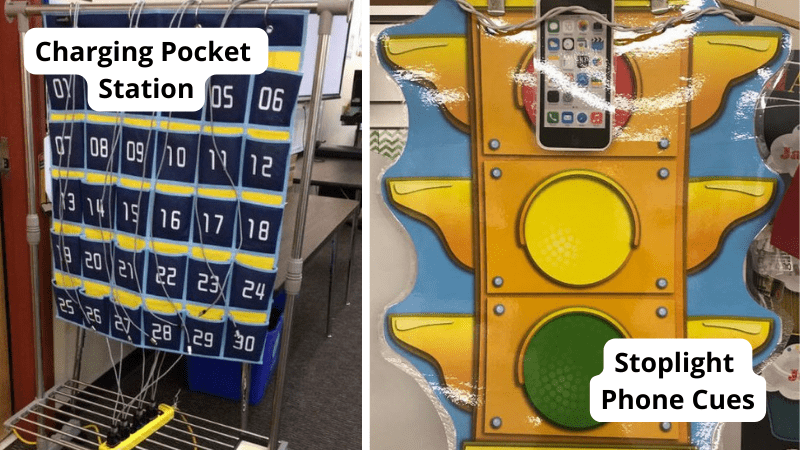
It’s important to establish classroom procedures for cell phones from the beginning. Having a cell phone charging station solves the problem of students checking their phones during instruction. Set up the expectation that students store phones in the station so there’s no back-and-forth about how much charge they have (their phones charging is not the point).
Learn more: Tips and Tricks for Managing Cell Phones in Class
18. Prep task boxes to keep kids busy
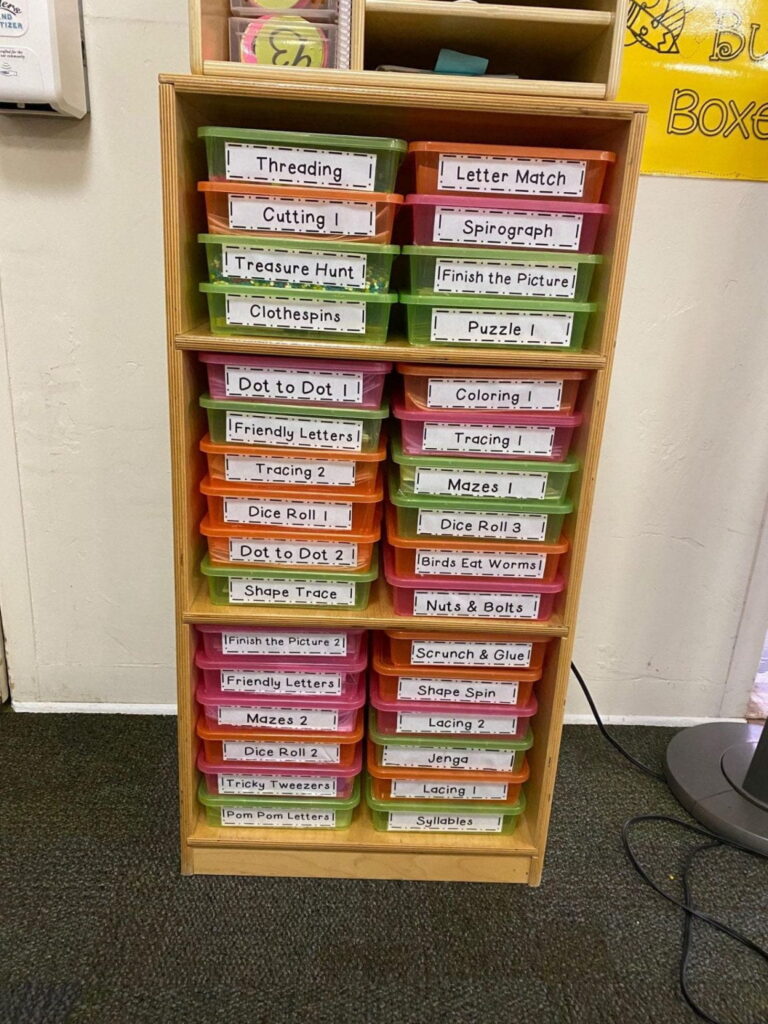
Having a set of boxes with coloring sheets, worksheets, extra practice, and games that students can play quietly or independently gives students a way to stay busy and learning while other students are finishing work.
Learn more: Swoop Into Kindergarten
19. Assign classroom jobs
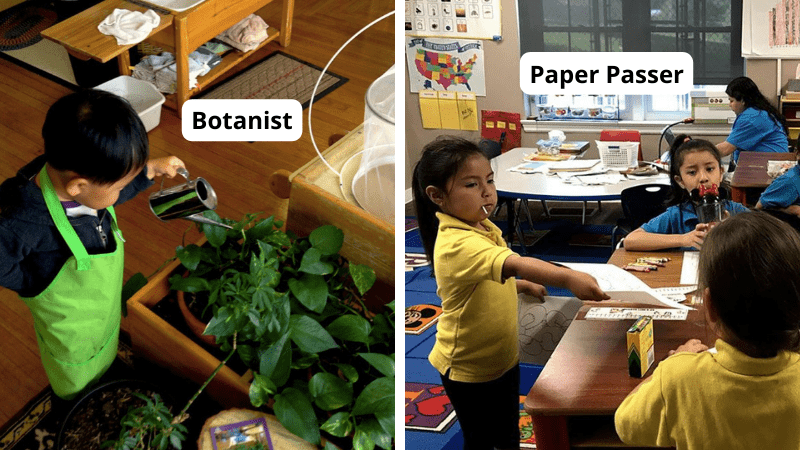
Assign class jobs so that every aspect of the day is taken care of, and so students have ownership over what happens in your room during the day. Set up a way to rotate the jobs each week, and once students have their preferred jobs, keep tabs on who is doing what so it feels fair.
Learn more: Big List of Classroom Jobs
20. Have students apply for class jobs
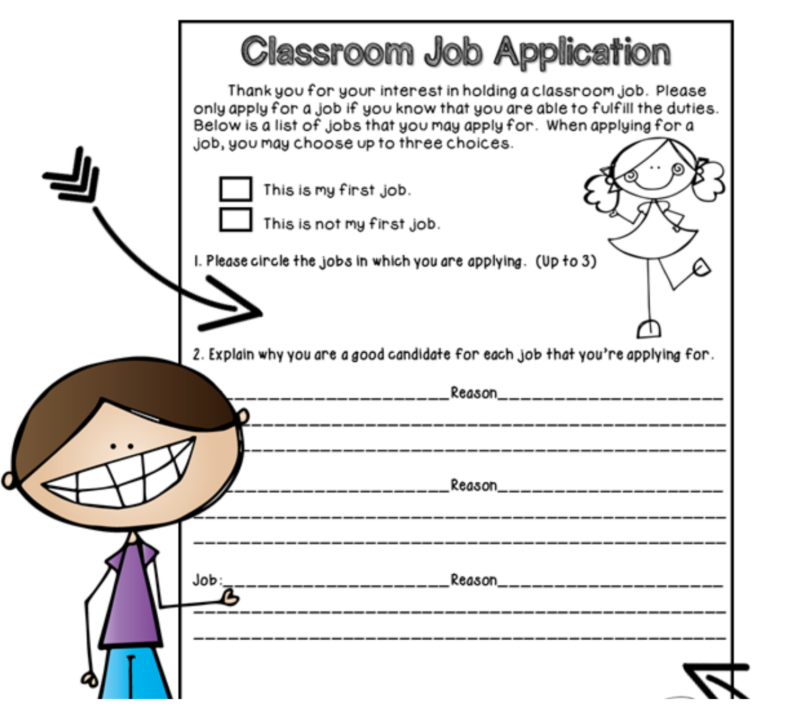
Once students know what the class jobs are, have them apply for a job to have for the semester or year. You’ll have consistency from week to week, and students will get the experience of applying and managing their responsibilities.
Learn more: Free Student Job Application at Teachers Pay Teachers
21. Communicate with cups
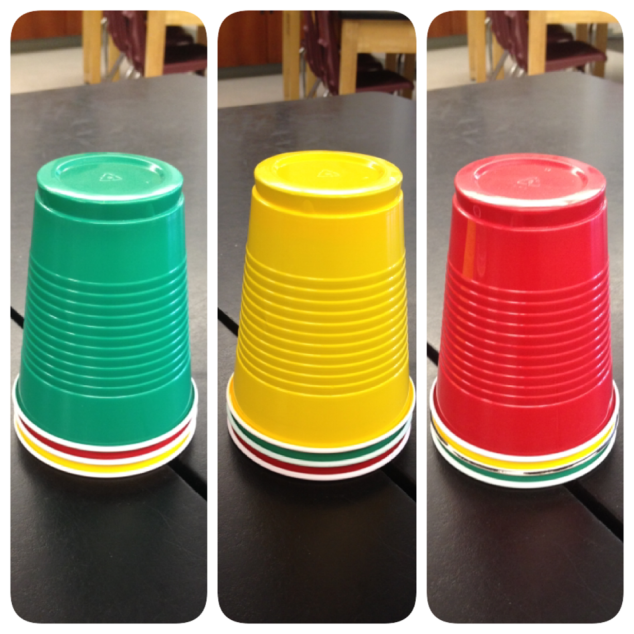
Provide students with a set of green, yellow, and red cups. As they work, they start with the green cup on top. If they feel like they need help, they switch the cup to yellow. And if they are totally stuck, they put the red cup on top. You can respond to the red cups first.
Learn more: Ingenious Ways To Use Solo Cups/K Teacher Tiff
22. Make bulletin boards work for you
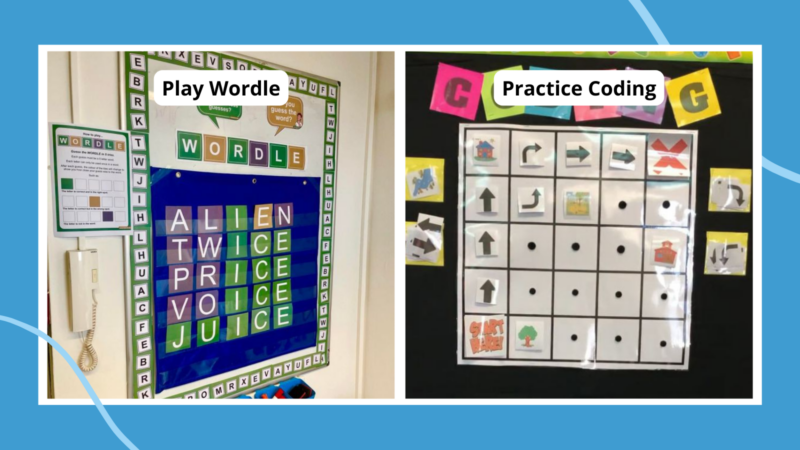
Interactive bulletin boards can help you collect exit tickets, give you information about what students think about a question, and provide a fun procedure for students to complete each day.
Learn more: Our Favorite Interactive Bulletin Boards
23. Tighten your exit ticket procedures
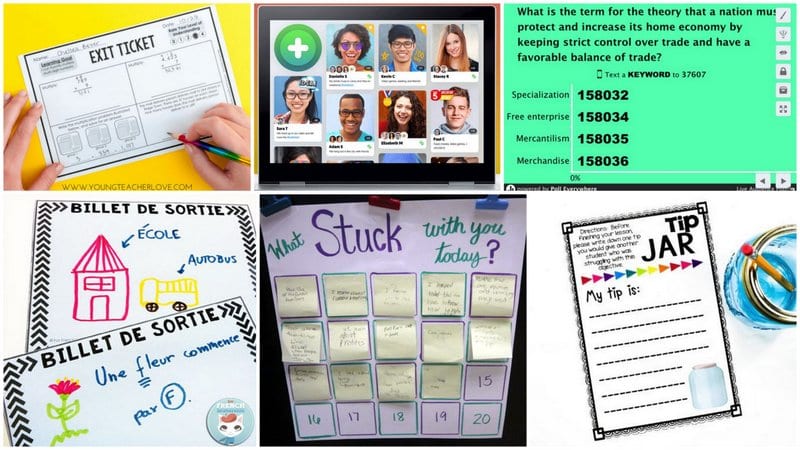
Create a predictable way to collect exit tickets so students can spend their time showing what they know instead of figuring out how to pass it in.
Learn more: Exit Ticket Ideas
24. Be strategic with seating
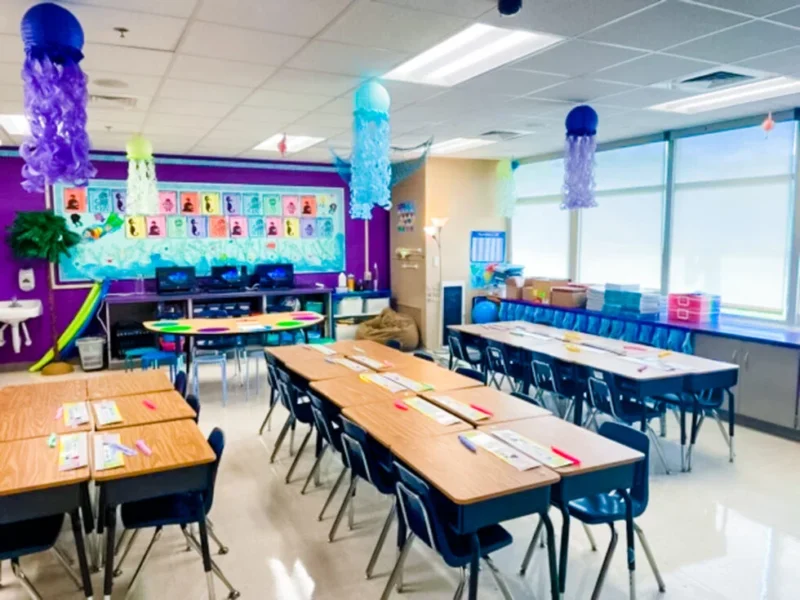
A Double E, Pairs, Four Square—these are all ways to arrange your classroom. Your classroom routines and procedures will go much smoother if the class is set up to facilitate everything from passing papers in and out to lining up and finding groups and partners to work with.
Learn more: Student Desk Arrangement Ideas/Lucky Little Learners
25. Organize classroom procedures around a theme
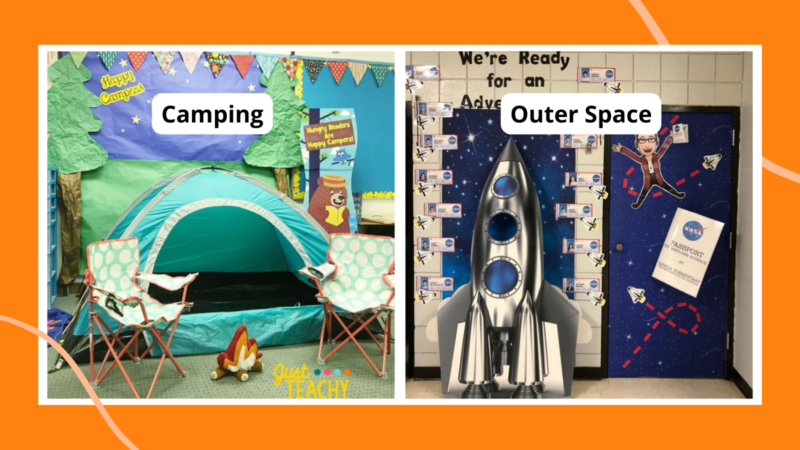
Who says your theme can’t incorporate procedures? Choose a classroom theme and get creative. If your theme is “Under the Sea,” have seashells on the wall where students can post exit tickets, an octopus cell phone charging station, and a paper return tray decorated like a coral reef.
Learn more: Our Favorite Classroom Theme Ideas
26. Sort students into groups creatively
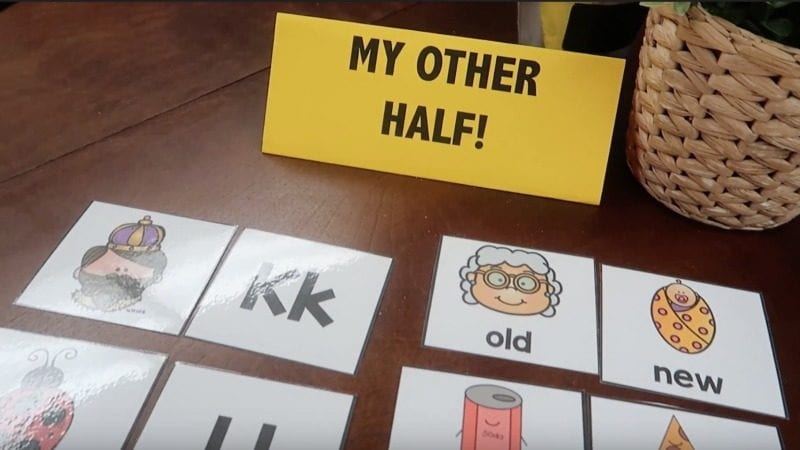
If students are going to be working together at all, you’ll save time by having a quick procedure to move them from whole group to pairs or teams. One idea: Use pairs of cards to have students match up with their partner. Another idea: While students are seated, place a colored button (one color per group) on each desk. Then, have students stand and find the people who have the same-color button. After they’re finished, have students return the buttons to a jar up front. You can use buttons or any other materials (colored sticks, tiles, etc).
Learn more: Clever Ways To Put Students Into Groups
27. Simplify grading
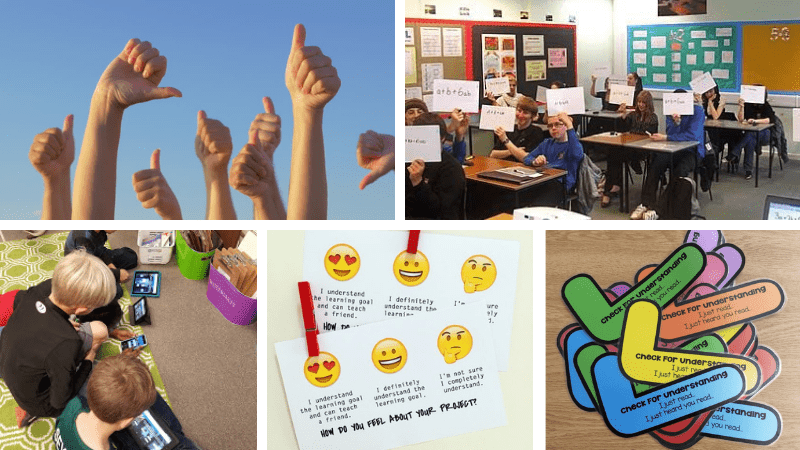
For informal assessments, let students know if they did or did not meet the assignment expectations. This is easier on you and gives students a quick update that they don’t have to calculate (7/10) or respond to (letter grades).
Learn more: Creative Ways To Check for Understanding
28. Make transitions magical

As students move from place to place in the room, use a “magic” wand and turn them all into snowflakes, unicorns, or yetis. Get silly with it, and as students get more familiar with this procedure, put them in charge of the magic wand.
Buy it: Magic Wand at Amazon
29. Post a visual schedule
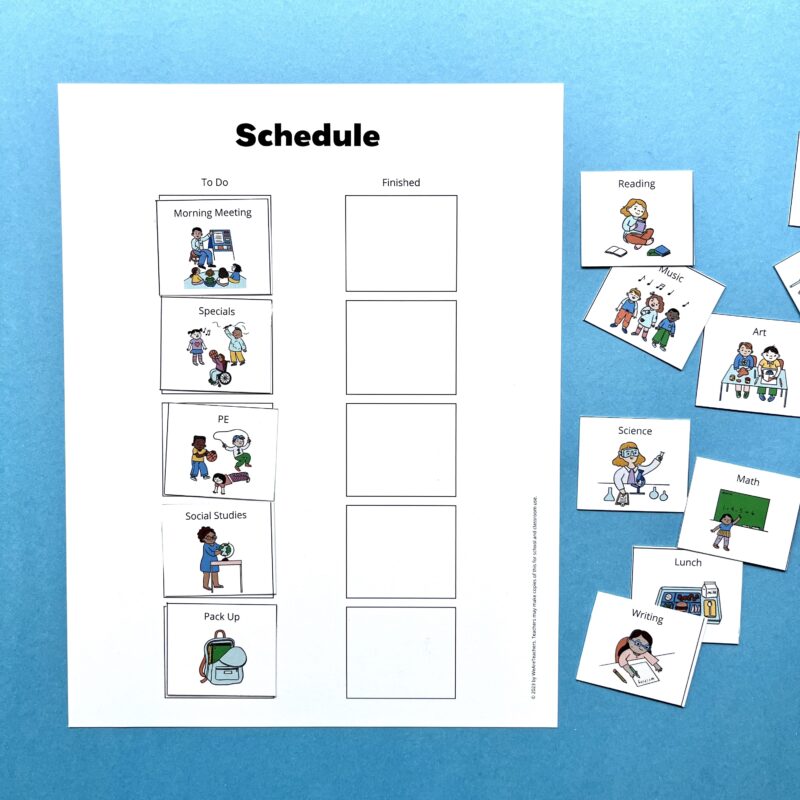
A visual schedule outlining your classroom procedures is a great way to help students know what’s coming next. And for students who process visual information easier than auditory, it’s helpful to be able to see the schedule and refer to it throughout the day. An individual visual schedule for a student with autism or processing needs can help them move throughout the day as well.
Learn more: Free Visual Schedule Templates
30. Bring nonverbal reminders wherever you go
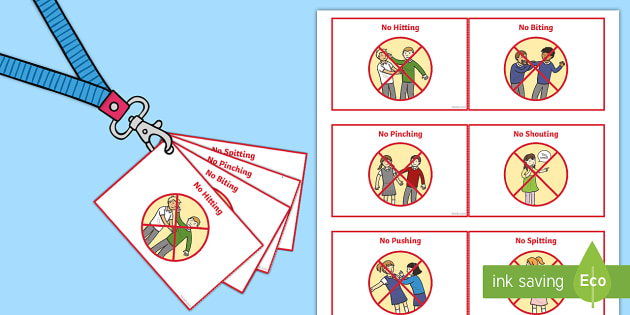
Hang nonverbal reminders around your neck/lanyard and use them to prompt students to follow procedures, anywhere you go.
Buy it: Pictoral Communication Cards at Twinkl
31. Buzz in answers
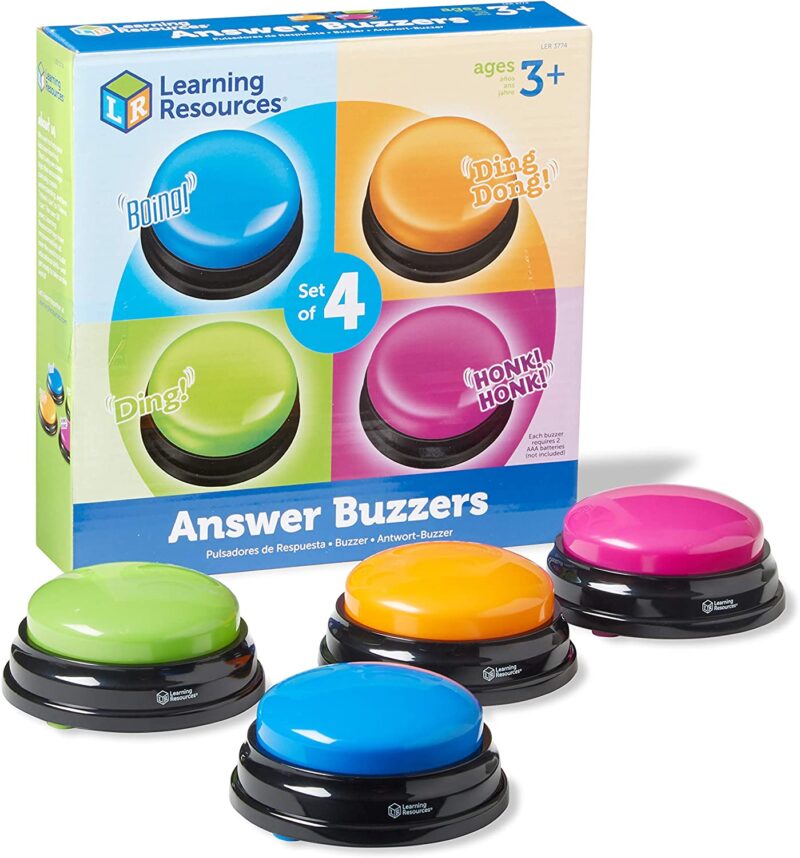
Once students are in groups, have them use answer buzzers to chime in. It reduces noise and calling out.
Buy it: Light and Sound Buzzers at Amazon
What classroom procedures would you add to the list? Come and share in our WeAreTeachers HELPLINE group on Facebook.
For more teacher tips, tricks, and ideas, be sure to sign up for our free newsletters to find out when they’re posted!
